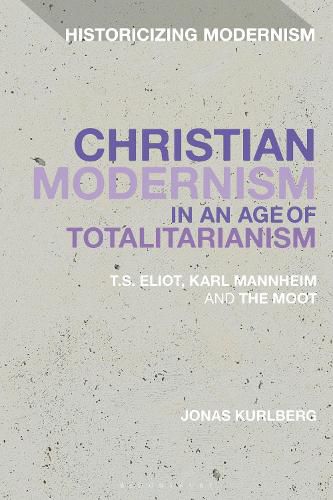Readings Newsletter
Become a Readings Member to make your shopping experience even easier.
Sign in or sign up for free!
You’re not far away from qualifying for FREE standard shipping within Australia
You’ve qualified for FREE standard shipping within Australia
The cart is loading…






With fascism on the march in Europe and a second World War looming, a group of Britain’s leading intellectuals - including T.S. Eliot, Karl Mannheim, John Middleton Murry, J. H. Oldham and Michael Polanyi - gathered together to explore ways of revitalising a culture that seemed to have lost its way. The group called themselves ‘the Moot’. Drawing on previously unpublished archival documents, this is the first in-depth study of the group’s work, writings and ideas in the decade of its existence from 1938-1947.
Christian Modernism in an Age of Totalitarianism explores the ways in which an important and influential strand of Modernist thought in the interwar years turned back to Christian ideas to offer a blueprint for the revitalisation of European culture. In this way the book challenges conceptions of Modernism as a secular movement and sheds new light on the culture of the late Modernist period.
$9.00 standard shipping within Australia
FREE standard shipping within Australia for orders over $100.00
Express & International shipping calculated at checkout
With fascism on the march in Europe and a second World War looming, a group of Britain’s leading intellectuals - including T.S. Eliot, Karl Mannheim, John Middleton Murry, J. H. Oldham and Michael Polanyi - gathered together to explore ways of revitalising a culture that seemed to have lost its way. The group called themselves ‘the Moot’. Drawing on previously unpublished archival documents, this is the first in-depth study of the group’s work, writings and ideas in the decade of its existence from 1938-1947.
Christian Modernism in an Age of Totalitarianism explores the ways in which an important and influential strand of Modernist thought in the interwar years turned back to Christian ideas to offer a blueprint for the revitalisation of European culture. In this way the book challenges conceptions of Modernism as a secular movement and sheds new light on the culture of the late Modernist period.